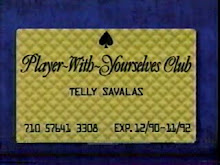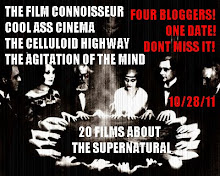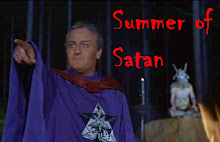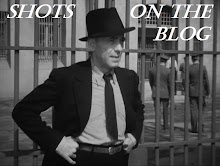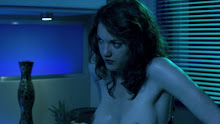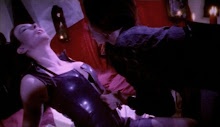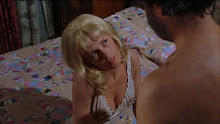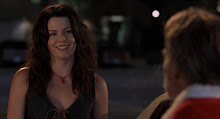 I first saw ‘Sideways’ at my local multiplex in February 2005; I went to see it again two weeks later. I bought the DVD on the day of release. I’ve watched it two or three times a year since then. On first viewing, I came to the conclusion that Alexander Payne was the next great American director. Simple as that.
I first saw ‘Sideways’ at my local multiplex in February 2005; I went to see it again two weeks later. I bought the DVD on the day of release. I’ve watched it two or three times a year since then. On first viewing, I came to the conclusion that Alexander Payne was the next great American director. Simple as that.‘Sideways’ made it three in a row after ‘Election’, one of very few films set in a high school that’s nonetheless intelligent, sophisticated and razor-sharp in its satire (seriously: if Golding’s ‘Lord of the Flies’ distils the whole brutal ethos of the adult world into a juvenile microcosm, ‘Election’ does the same for American politics, emerging as cleverer, funnier and more acute than an entire series of ‘The West Wing’) and ‘About Schmidt’, the unlikeliest road movie this side of ‘The Straight Story’, wherein Jack Nicholson turned in a late period performance of such understated pathos that you rediscover what a great actor he is. By turns humorous, whimsical and melancholy, ‘About Schmidt’ is also honest, featuring the quietest yet the most devastatingly poignant ending.
Hard to believe it’s been four years since ‘Sideways’ and with the exception of a contribution to a portmanteau film about Paris, we’re still waiting for Payne’s follow up, ‘Fork in the Road’ from Dennis Hamill’s novel about an Irish-American film-maker’s relationship with a passionate but unpredictable gypsy woman and the correlation between life and art. With a little bit of luck, a fair wind and a huge amount of talent (and Payne has the latter, lordie yessum) ‘Fork in the Road’ could be a classic in waiting.
But for the moment we have ‘Sideways’, a bona fide classic and a production that I am convinced will be remembered as the best American film of this decade. Beautifully scripted, impeccably acted and oh the direction! In an era of film-making where most directors seem to scream at the camera “LOOK AT MEEEEEEEEEEEE! I’M DIRECTING!!!”, Alexander Payne does something radical and wonderful that I’d like to give him a great big hug and buy him a pint for: he assumes his audience are intelligent and sensitive and can think about what they’re watching instead of being told it.
This is how good the direction is: you forget that it’s a film and somebody directed it. That’s it. End of. I can’t think of higher praise. The best books I’ve read have made me forget I was turning pages and looking at printed words: I’ve lived inside them and known the characters. The best paintings and photographs I’ve seen haven’t been contained within a frame and held permanently in stasis: they’ve made me think that I’ve just blinked and still have imprinted on the retina a scene that’s even now changing and spilling out and generating a new dynamic.
I know the characters in ‘Sideways’. I’ve spent time with them. I recognise myself in them. That neither of the protagonists are, on the surface, particularly sympathetic makes Payne’s achievement – by the final frames, all sins are forgiven and you desperately care about them – all the more impressive. Miles (Paul Giametti) is a middle-aged high school teacher, would-be novelist and wine snob. He’s self-important, depressive and not above ripping off his mother for a couple of hundred dollars. His best friend Jack (Thomas Haden Church) is a once-successful actor now reduced to doing voiceovers and prepared to take a soul-destroying job in his prospective father-in-law’s real estate business.
Taking off for a week-long wine-tasting holiday before Jack finally ties the knot with his society-girl fiancée, ‘Sideways’ plays out as a finely observed study of failure, self-doubt and the occasional small moment of redemption. The humour and the melancholy derive in equal measure from the ‘Odd Couple’-style relationship between the mismatched protagonists. Miles is given to snobbery (“quaffable,” he opines of one vintage, “but a long way from transcendence”), while Jack’s retinue of comments strikes out no further intellectually than the succession of women he eyes up for his final fling (“God, that chick's hot”).
You’d have every reason not to like these guys. But they’re real. They are flawed and recognisable and all too human. The women they meet and get involved with – once-bitten-twice-shy Maya (Virginia Madsen) and uninhibited free spirit Stephanie (Sandra Oh) – throw their rumpled and compromised humanity into sharp relief. They are the real heroes of the film: women who hold out hope in the face of the failures of men.
Am I making ‘Sideways’ sound heavy? Not so. It’s intelligent. It’s perceptive. That doesn’t mean it’s not eminently watchable, very entertaining and often laugh-out-loud funny. Alexander Payne has cited Luis Buñuel as an inspiration (that shot of the ostrich means so much more in this context) and delivers an inspired sequence towards the end of the film – key components: sexual embarrassment, class barriers, quasi-voyeurism and the shock of the absurb – that would have made his idol proud.
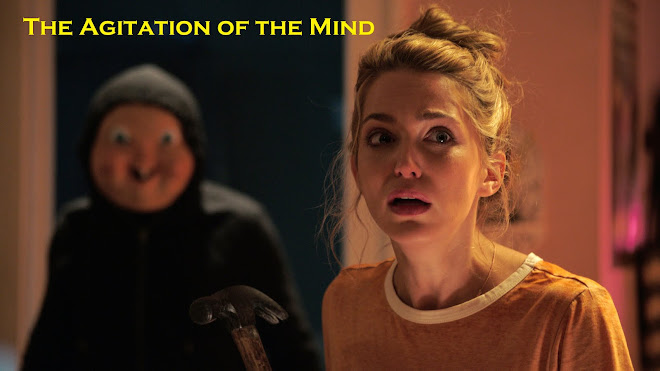

























 ‘The Godfather’
‘The Godfather’


























